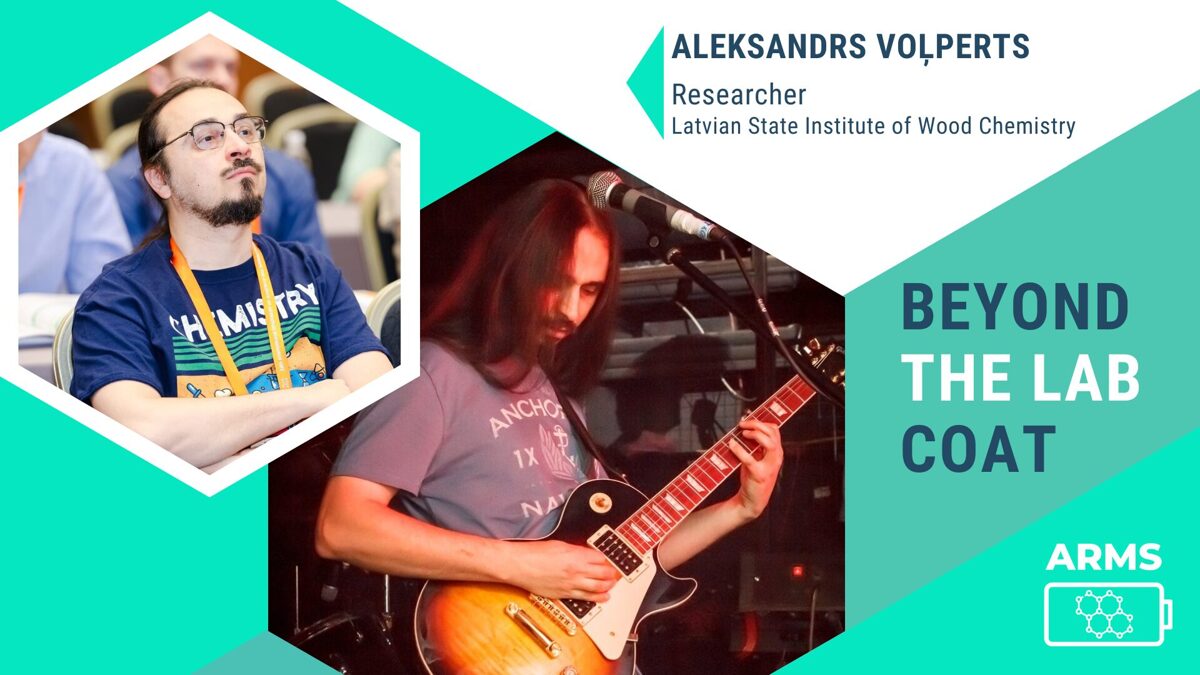Beyond the Lab Coat - Aleksandrs Voļperts (Latvian State Institute of Wood Chemistry)

Did you dream of becoming a scientist as a child?
Honestly, I do not remember wanting to be anything when I was just a kid.
My interest in this began when I was a teenager, but becoming a scientist was
never on the table for sure.
If not, what was your childhood dream job?
My father was a repairman specialising in copying equipment, and I suppose
I wanted to be someone who could fix various devices, such as a TV or a cassette
deck. Actually, I realized that this dream has partially come true; I cannot
fix everything, but I try.
What inspired you to pursue science?
I suppose it was a young biology teacher, Eleanora, who worked at my school
for a relatively short period, who sowed the first seeds. She was vastly
different from the old soviet approach to teaching and interaction with
kids.
Was it a person, a moment, a book, or something
unexpected?
No, in hindsight – yes, it was a person. I really took to biology at that
time, even getting a crash course on genetics for schoolchildren. It was long
before online, I got my tasks by conventional mail.
What do you love most about being a scientist today?
We are a rare breed, driven by enthusiasm and a thirst for knowledge.
Search for truth, search for facts. It became a part of me and probably always
was. Dig until you find the answer, if you can. This kind of occupation offers
the opportunity to travel around the world and meet some of the smartest and
most intelligent people of our time, including Nobel Prize winners.
Share what keeps you curious, motivated, or fulfilled.
The mentioned desire to be on your tiptoes all the time, perhaps. And you
have to be creative, which is the best.
What’s one myth about scientists you’d love to bust?
“Just a theory” myth – some people are dismissive of scientific theories,
thinking that it is something unproven and just hypothetical. Nope, sorry,
theory is the highest degree of scientific knowledge, at least for now.
What’s the weirdest or most unexpected thing you’ve
learned in your field?
To me, the most unexpected thing was (and still is) that I have to somehow
manage finances and budgets. No one ever prepared me for that when I was a
student.
What’s your favorite non-science hobby?
That is definitely music for me. I come from a musical family, and it has
been in my blood since childhood. I played guitar in several bands throughout
my lifetime, and we have had our albums issued by German and French record
labels, which are available on Amazon worldwide.
If science were a movie genre, what would your research
be? (e.g., thriller, comedy, sci-fi...)
I suppose an endless rom-com series, where there are heartbreaking
discoveries of non-working ideas and malfunctioning equipment, a revolving door
of characters who come and go, as students do, but in the end, everything
somehow works out right and everybody is happy and smiling.
What is your favourite movie?
It would be Big Fish by Tim Burton. I really love how it highlights the
fine line between reality and imagination, and how deeply it delves into human
nature.
What's your favourite book?
Here, it is challenging to name just one, so I will name two. The first one
is from my younger years: The Lord Of The Rings by J.R.R. Tolkien – that left a
lasting impression many years ago, I suppose. I have reread it a dozen times.
The other one is very different: The Black Obelisk by Erich Maria Remarque, which explores the consequences of war and how it changes people forever. The horrifying
truth that is told there, “The death of one man is a tragedy, the death of
millions is a statistic”, was and is incredibly valid nowadays.
